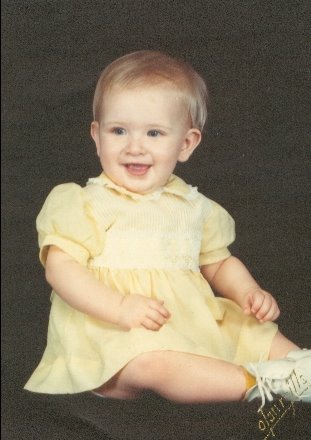Poetry Book Six: A Collection of Poetry Compiled by Paul Janeczko
Janeczko, Paul B. (1991). Preposterous: Poems of Youth. New York: Orchard Books. ISBN 0531085015.
The world around us changes daily. Technological advances and cultural progress make us feel like our world is become better and better—sometimes at the expense of perfectly wonderful traditions. But some things never change. One example of that can be illustrated in Janeczko’s Preposterous, a collection of poetry written for young people about topics they face daily—most of them seem like they could have been written yesterday, but they are still relevant today.
With a collection of 108 poets, some famous (Gary Soto, Anne Sexton, Langston Hughes to name a few), some not as much, Janeczko has put together a group of 82 poems illustrating with both humor and frank seriousness, the thoughts, emotions and experiences of young people “coming of age” in many different ages.
Following are a few of my favorites:
Juke Box Love Song by Langston Hughes
I could take the Harlem night
and wrap around you,
Take the neon lights and make a crown,
Take the Lenox Avenue buses,
Taxis, subways,
And for your love song tone their rumble down.
Take Harlem’s heartbeat,
Make a drumbeat,
Put it on a record, let it whirl,
And while we listen to it play,
Dance with you till day—
Dance with you, my sweet brown Harlem girl.
Sister by H.R. Coursen
Younger than they,
and not the same.
Girl growing amid
a grove of brothers.
They took my dolls
one day into their
forbidden circle
in the woods,
drove sticks
into the cleared dirt,
and burned them
at the stake.
No Question by Leo Dangel
There was no question,
I had to fight Arnold Gertz
behind the high school that Friday.
All fall he kept throwing pool balls
at me in the rec room.
There was no question,
I was scared spitless at the mere sight
of his grimy fists and bull neck.
When we rolled on the cinders
and grappled and thumped each other,
there was no question,
I was actually winning
when the principal broke us up.
And when Arnold went hunting pheasants
on Sunday, everybody said
there was no question,
he was a damn fool to climb through
a barbed wire fence with a loaded shotgun.
There were exactly eight of us guys
who were classmates of Arnold so
there was no question,
I had to be one of the pallbearers,
even though I never liked Arnold,
never would have, but I was sorry
the accident happened,
there was no question,
and if her hadn’t got himself shot,
I wonder if he finally would have let me alone.
There is no question,
I wonder about that.
Anne Frank by Sheryl L. Nelms
I played hooky once
to see
if I could do it
it wasn’t much fun
because the only
place I knew
to go
was home
then Dad showed up
in his squad car
and I spent the afternoon
huddled in my closet
reading The Diary of Anne Frank
by flashlight.
I’m sure I could include at least fifty more with which I relate or remember relating to as a young person. The poems above seem timeless because even though they might have been written in my parents’ generation (or before) their themes still apply to me.
Following this line of reasoning, I think a collection of poems like this could 1) spark discussion amongst young adults about issues which are common—those which transcend generations, 2) open a discussion about the changes in vocabulary and traditions of youth, and 3) encourage young adults to write poems about experiences, thoughts or emotions they are feeling… These poems could be typewritten (in the same font) so that they remain anonymous, read before the class and a discussion could follow as to whether or not other students relate to the themes expressed.
Reviews of Preposterous (per Amazon.com):
From Kirkus Reviews
By more than 80 authors, including Robert Penn Warren, Anne Sexton, Langston Hughes, and Herbert Scott, an anthology of recent (70's and 80's) poems plus a few nostalgic looks at long- gone youth, with references to WW II and earlier. Many relate sharply poignant stories or epiphanies, succinctly and powerfully recalled; Janesczko's familiar themes (e.g., small-town life, Catholic angst) frequently recur. The voices are almost overwhelmingly male (an imbalance echoed in the handsome jacket painting of a small, worried girl peering from behind a much larger, confident man), but the quality is so high, the appeal so immediate, and the selection so personal that it's a forgivable happenstance; teen-agers will easily identify with the problems expressed, often reflecting adolescence as a time of deep self- absorption and loss of faith in childhood beliefs. An excellent collection for any library, especially those with activities involving poetry.
From School Library Journal
Grade 7 Up --A collection of more than 100 short poems by contemporary authors such as Leo Dangle, David Allan Evans, Gary Soto, and Charles Harper Webb that center on the bittersweet experience of growing up. Those who have enjoyed Janeczko's Pocket Poems (1985), Going Over to Your Place (1987), and Don't Forget to Fly (1981, all Bradbury) will recognize the appeal of this one--a wide range of poems that describe basic human experiences in deceptively simple language. Some of the epiphanies are lighthearted, but the overall tone is wryly serious… Zeroing in on issues that concern most adolescents--alienation, belonging, friendship, movies, sex, school, truancy, family, and death--these poems will grab readers and not let them go. The anthology concludes with William Stafford's lines, "It's hard being a person./We all know that." Janeczko makes the notion that poetry is boring seem totally preposterous.


0 Comments:
Post a Comment
<< Home